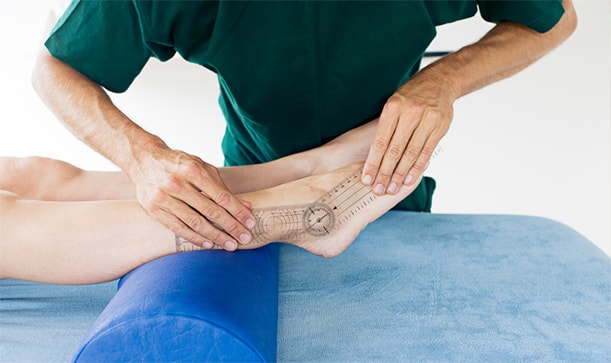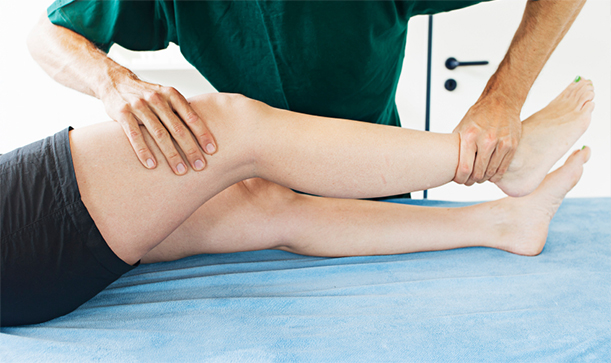CK Physiotherapy
AREAS COVERED
W7, W5, W13, Ealing, West London
57 Elthorne Avenue
Hanwell, W7 2JY
T: 020 8566 4113
M: 079 572 46185
E: info@ckphysio.co.uk
Location / Parking
We are situated in Hanwell, between Boston Manor Road and Northfields Avenue, south of the Uxbridge Road.57 Elthorne Avenue
Hanwell, W7 2JY
There are parking restrictions Mon - Fri 9-10am and 2-3pm. If you need a permit during this time please inform your therapist when you arrive. There are no parking restrictions at other times.
Opening Times
Please phone the number above during working hours to make an appointment. Our reception service will be happy to book your session.
London Underground / Bus Services
London Underground
10 min. walk from Boston Manor Tube Station.
15 min. walk from Northfields Tube Station.
Bus Service
E8, E3, E2, 207, 607, 83
Request Call Back
Our Blog
How Physiotherapy Can Help With Pelvic Health Issues
By: admin Date: Nov 22nd, 2022People often take a healthy pelvis for granted.
It isn’t a part of the body that people commonly think about until they have a problem. Many people aren't fully aware of the impact it has on our lives.
But without our pelvis, we wouldn't be able to stand up and move around, and our lower internal organs would be at much greater risk of injury. The pelvis helps support our upper body, houses and protects our internal organs and connects our legs to our trunk.
The pelvic area is a complex structure that consists of three main bones: the hip bone, the sacrum, and the coccyx. A group of muscles form the floor of the pelvis, and are responsible for supporting the bladder, the bowels and in women – the uterus.
These are called the pelvic floor muscles.
The importance of the pelvic floor muscles
The pelvic floor muscles are some of the most important muscles in your body.
They help you do things like have bowel movements, urinate, and experience healthy sexual activity. And when it comes to childbirth, they are responsible for helping babies arrive through the birth canal.
When your pelvic floor muscles aren’t functioning correctly, it can cause a range of health problems.
When your pelvic floor muscles are too tight, it can cause pain in your pelvis, and constipation or you may be unable to completely empty your bowels.
When your pelvic floor muscles become too loose, it can lead to incontinence. In more serious cases, it can lead to pelvic organ prolapse where the muscles no longer support your bladder, uterus, or rectum.
It’s common for women to face challenges with their pelvic floor muscles after childbirth. The muscles are stretched, loosened, and weakened during the process of giving birth. This is one of the reasons why temporary incontinence is typical for women after having a child.
Physiotherapy and pelvic floor exercises can help strengthen your pelvic floor muscles to help prevent injury and can be effective as treatment should you suffer from issues with your pelvic health.
How physiotherapy can help with pelvic floor muscle injuries
Physiotherapy can be an effective treatment for many pelvic floor injuries.
However, it’s not the right solution for everyone.
If you have chronic pain in your pelvis, have major incidents of incontinence, or have a pelvic organ prolapse, it’s important to seek medical guidance from your GP before starting physiotherapy for your pelvic floor muscles.
Physiotherapists have a range of techniques and exercises to help you recover from pelvic floor muscle injuries.
After a consultation, your physiotherapist will advise a tailored treatment plan to help restore proper function to your pelvic floor muscles that might include stretches and strengthening exercises, relaxation exercises and electrical stimulation.
Treatment might also include biofeedback, which uses electronic monitoring to help patients learn to control muscles in their bodies.
How we approach treatment of the pelvic floor muscles
At CK Physiotherapy, we understand that pelvic health issues can be extremely frustrating and have a significant impact on your daily life.
That’s why we take a comprehensive approach when treating our patients with pelvic health issues.
The first thing we want to do is get a full understanding of your medical history, with a particular focus on any issues related to your pelvic function.
If you’re suffering from more serious issues with your pelvis, we might want to consult with your GP before treatment begins.
The next step is to conduct a thorough pelvic floor muscle examination, which may include an internal review of your vagina or anus.
We’ll also examine your posture and movement, as the way you stand, sit and walk can all have an impact on the effective function of your pelvic floor muscles.
Once you’ve had your examination, we’ll come up with an individual treatment plan tailored to your specific situation
Preventative exercises to help strengthen the pelvic floor muscles
If you want to improve the health of your pelvic floor, a good exercise is to gently squeeze and relax the muscles around 15 times, holding each squeeze for 1-2 seconds.
You can do this while sitting down, standing up, or lying down. If you're wondering which muscles you need to focus on, imagine that you're trying to stop urinating mid-flow. They are your pelvic floor muscles.
If you complete this exercise regularly over time, it will strengthen your pelvic floor muscles and decrease your risk of injury.
How can I find out more about pelvic health treatment and rehabilitation?
At CK Physiotherapy, we have a team of licenced, chartered physiotherapists operating in the Ealing area. We specialise in pelvic rehabilitation and can help you get back to a pain-free life.
If you’re suffering from pelvic floor health issues, our experts may be able to help you. Get in touch with our friendly team for an online consultation.
One of our therapists will connect with you to talk about your condition and medical history, arrange an examination, and work with you to create an individualised treatment plan.
Get in touch today to find out more about pelvic health physiotherapy and how it can help you.
References:
https://www.nhs.uk/common-health-questions/womens-health/what-are-pelvic-floor-exercises/
https://www.circlehealthgroup.co.uk/treatments/pelvic-floor-physiotherapy
https://teachmeanatomy.info/pelvis/bones/
https://www.fyzical.com/sarasota-downtown/blog/What-is-Pelvic-Floor-Physical-Therapy
https://www.jeanhailes.org.au/news/pelvic-pain-know-the-differences-and-when-to-seek-help





